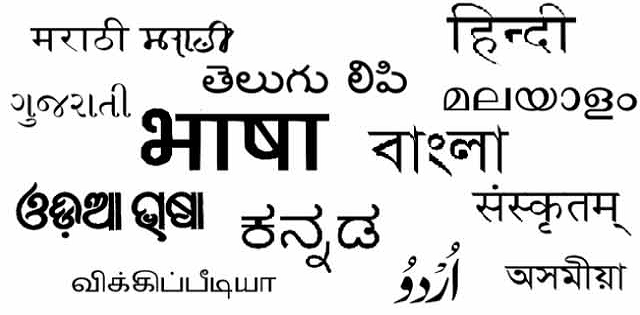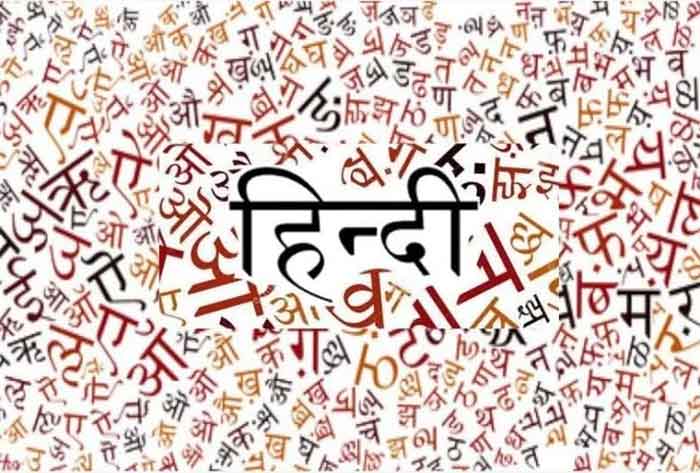
These days there is a lot of enthusiasm in progressive liberal circles about the powerful presence of dissent in Indian traditional thought.Accompanied by head-shaking about the pernicious effect of Anglophilia and dominance of the Engish language in academic circles.
Inordinately nettled at the saffron camp’s repression of liberal thinking in the name of pristine Indian tradition and at its hostile imputation of slavery to Western culture,our modern scholars have discovered triumphantly the presence of strong voices of dissent from orthodoxy in our ancient and medieval thinking.They now claim assertively that their dissent is no import from alien Western tradition,but rooted in a long and respected strand in our country’s tradition.
Following upon this surge in interest in native traditions of dissent there arose the uncomfortable question as to why the Saffron camp has succeeded in persuading the common people that progressive liberals are hostile to native Indian culture.Historian Rama Chandra Guha believes that modern Indian scholars without access to native Indian languages face a barrier in their communication to the people.He has rued the dwindling numbers of bilingual scholars who had in the past been so familiar.In fact most of them up to the sixties of the last century wrote mainly in their own native languages, occasionally breaking into English to reach a wider educated audience.It is thus reduced to the problem of linguistic competence and versatility.In fact it hides a much deeper problem.
Actually following independence thanks to the rapid growth of a countrywide administration and modern education system upon foundations laid by the British rulers, in the absence of a national language that was already widely accessible over diverse regions!,English graduated from an expedient provisional general medium to an indispensable one for all channnels of communication.
Particularly for academic purposes it became the universal channel for communication,as well as the most effective tool for innovative and productive academic purposes.Those states like Bihar that under the thoughtless and impetuous influence of Lohiawites changed over to Hindi for higher education saw a terrible decline in academic standards.Likewise in 1972 the hasty change-over to regional languages in many states saw a steep fall in academic standards and competence,and the middle-class hastened to abandon common day schools and flock to mushroom-like English medium schools.All this happened under the eyes of an absent-minded centre that went on spinning novel educational theories.
Following this phase most competent scholars were at home in English and even brilliant scholars working in regional languages and who struggled with their English were denied due recognition.Bengali,Maharashtra and a few others might have been spared this fate as bilingualism in academic circles in them had strong foundations.Certain scholars could also write exclusively in their native languages as they had unstinted access to wide and knowledgeable readership in them.But the hegemony of English in elite academic circles,bolstered by foreign recognition, left room in Hindi for rapid growth of reactionary and revivalist ideas and discourses and these trends were simply scorned and ignored as so much atavistic rubbish.
This development has patently social impetus derived from the aspirations of a social elite feathering their own nests through monopoly over language of knowledge,power and opportunity.Incidentally it also fostered lower-middle-class resentment against the Anglophil elite articulate in hatred of the ‘Lutyens gang’ for example.It also for most of the time ignored the flowering of talent in native languages until recently.Of course this is only a bare sketch of a fairly complex and multifarious history.Now that the Anglophil intelligentsia feels the need to invoke native inheritance, they realize that in spite of availability of certain works in English,they lack direct access to the treasure of knowledge in regional languages.Hence the lament for paucity of bilingual scholars.
Apart from the intrinsic interest of this episode there is also an interesting sidelight that deserves mention. Are these scholars justified in thinking of and referring to such currents of thought in the past in terms of ‘dissent’. It needs to be emphasized that though in hindsight these appear to be forms of non-conformism like those of independent scholars of our time,these appear to have been powerful articulations of social rebellion and revolt.This is particularly true of thinkers like Kabir and Nanak and others like them like Ravidas.Their religious ideas went hand in hand with their revolutionary social ideas challenging the iniquity of caste,the foundation of traditional Indian social structure and the divisive practices of rigid faiths reinforced by clerics and priests.I had occasion to lay stress on the signal importance of the Bhakti movement in Indian history,invoking the priceless contributions of Kshiti Mohan Sen and Hazari Prasad Dwivedi at Shanti Niketan under Tagore’s direct patronage.(‘The Labyrinth of Bhakti’,Economic and Political Weekly,1988).
For reasons yet to be fully explored, this powerful radical movement,a tidal social challenge to the stranglehold of Brahminism in Indian social structure and ideological sphere,after a century of turbulence got confined within particular sects.And Brahminism either co-opted them or restricted their influence to heterodox sects.Hindu and Muslim orthodoxy reigned undisturbed,though in lower levels of society similar ideas continued to simmer outside the ken of guardians of orthodoxy and social conservatism.Thinking of them as only some kind of dissenting opinion certainly looks like a most extraordinary understatement.
Hiren Gohain is a political commentator












































